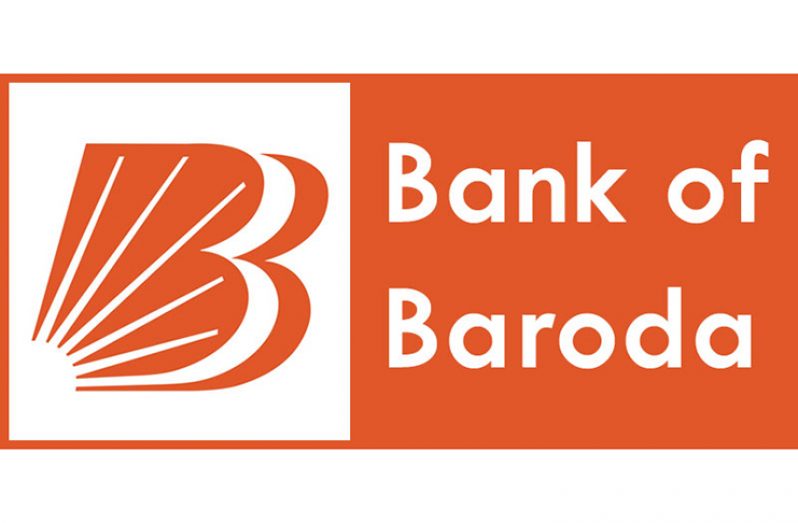…says move presents opportunity for Guyanese to launch own banking ventures
INDIA’s international financial institution, the Bank of Baroda, signalled since April this year its intention to close its operations here and the move by the bank presents an opportunity for Guyanese to launch their own banking ventures.
This is according to Finance Minister Winston Jordan who told the National Assembly on Friday night that those efforts by the opposition People’s Progressive Party to tie the decision of the bank to the state of the Guyana economy are “wicked” in nature. On Thursday , the India-headquartered bank said that it was seeking investment bankers for the sale/disinvestment of Bank of Baroda’s entire 100 percent stake in the Bank of Baroda (Guyana) Inc.(BOBGI) operations. The bank’s executives were quoted in a report as saying that they wish to focus more on other markets, including moves to tap into the Asian markets.
Minister Jordan said that opposition MP Anil Nandlall during his budget debate presentation on Friday morning stated that the action of the Bank of Baroda as well as Scotiabank, which recently entered into an agreement with Republic Bank for a takeover by the Trinidad-owned banking institution – represented “a verdict.”
Jordan said the closure of the bank comes as no surprise to the government. He said that the government had been alerted since April that the Bank of Baroda was moving from Guyana; and he noted that government tried to persuade the bank that “doing business in Guyana is good.”
He said he learnt that even the local chiefs of the bank were unaware of the decision of its principals in India. “The point being made is that these banks consider doing business in these states, not profitable anymore”, he said. He said the risks have increased, including regulations which they have to contend with. ”So they don’t consider our territories to be profitable, investment territories anymore,” he said. He said the decision by Scotiabank may be similar in nature.
The Finance Minister noted that the scenario presents an opportunity for Guyanese to “step up to the plate.” He said that opportunities exist for local and overseas businessmen to enter similar businesses. He said with five billion-plus barrels of oil estimated by American oil giant ExxonMobil in the Stabroek Block offshore Guyana, a number of opportunities exist. He noted that many global businesses are focusing their attention on these shores, including international air carriers. “American Airlines is here,” he said, noting that similar entities are all lining up and will “galvanise” when the first barrel of oil is pumped come 2020.
Jordan said within the banking sector, there are many headlines which tell of the successes of other commercial banks. “Republic Bank’s profit up by 14.4%, Demerara Bank records two billion in profits,” he said of their performance, adding that Citizens Bank recorded a 51.6% increase in after –tax profits in 2017. ”Does that look like the verdict is in?” Jordan asked.
The Finance Minister said that “it’s just a wicked piece of commentary “made by Nandlall to satisfy an audience, noting that he knows the truth. Reports are that the decision by the Bank of Baroda lies in its plans to shift its focus on four overseas territories, those being the United States, the United Kingdom, the United Arab Emirates (UAE) and Singapore.
The Bank of Nova Scotia reported last month-end, that fourth-quarter earnings which were marginally below expectations and said it planned to exit nine countries in the Caribbean as part of a shake-up of that business. The bank, which has operated in the Caribbean since 1889, said that it would refocus its business in the Region by selling its insurance operations in Jamaica and Trinidad & Tobago to Sagicor Financial Corporation, with which it will partner to sell insurance products in those countries.
Scotiabank said it planned to sell its banking operations in Anguilla, Antigua, Dominica, Grenada, Guyana, St Kitts & Nevis, St Lucia, St Maarten and St Vincent & the Grenadines to Republic Financial Holdings. The Ministry of Finance subsequently said that Republic Bank currently holds 35.4 per cent of the banking systems assets and 36.8per cent of deposits in Guyana and the acquisition of Scotiabank will up this to 51 per cent of both assets and deposits.
This too will have an impact on competition and the potential for Republic Bank to have too much influence on pricing of banking products and rates. The sale will also have an impact on issues related to correspondent banking options and the loss of jobs, with Republic Bank likely to consolidate branches. The Finance Ministry said the decision was made when Guyana’s economy is on the cusp of financial transformation with the onset of the massive new oil and gas sector raises concerns and is regretted.




.png)









